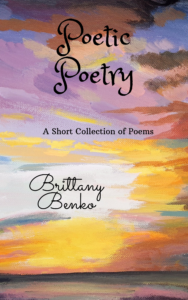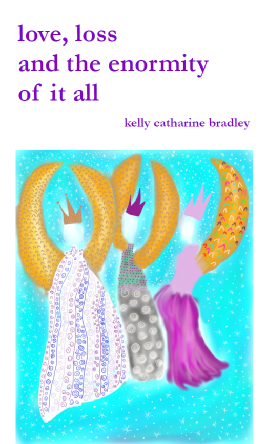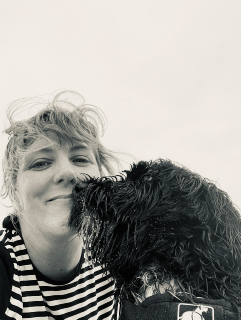
Paperback, 48 pgs
I am an Amazon Affiliate
I Dream of Empathy by Marianne Szlyk is a slim collection of poems that search for empathy, an understanding of how others feel.Her poems speak to the hurts of the past, to the environment, a mother, a husband, and a self. She reflects with sadness for the past and present, but with a sense of hope that things can be better as long as we strive to connect with one another and our environment. There are some poems that are deeply sad, like “She Wonders What Will Become of this City,” in which the narrator says, “She wonders what will become of this city/once the oceans rise and ghost towns form like coral reefs.// The real coral reefs will have crumbled,/all color leaching away into the corrosive sea.//”
Szlyk is an artist of words. She paints full pictures and creates poetic stories to give readers an internal monologue, but also a painting of a life. Like in “Cabin Fever,” she helps the reader see the hopeless feeling of cabin fever, how there is the desire to do something, but nothing inside the home. There is an immobility in that fever. The narrator of the poem is sitting and replaying saxophone songs in her head, while the laundry piles up and the use of the dryer worries her about the impact it will have on the environment.
One of the best sections of the collection are the “Scene from the Blue Room,” where Szlyk explores the relationships between a grandmother, granddaughter, and mother in a series of poems. The love of the sea/lake is passed from generation to generation. The passage of time is distilled into melting ice cream in a cereal bowl and the wafting big band music in the first poem in the series. In the second poem in the series, the granddaughter has made it to the bedside of her passing grandmother, missing her father and their times by the pond/lake, and wishing her relationship with her mother would improve. In the third poem, the granddaughter has grown up and had to sell the house she loved to visit. There’s a sense of closure in that she understands that walls can be painted over.
I Dream of Empathy by Marianne Szlyk is full of surprises and sharp observations about human relationships and how to find empathy or at least understand where others are coming from. She conjures a story where the reader has little choice but to fall in and follow her lead.
RATING: Quatrain

 About the Poet:
About the Poet:





 About the Poet:
About the Poet:
 About the Author:
About the Author:


 About the Poet:
About the Poet:

 About the Poet:
About the Poet:


